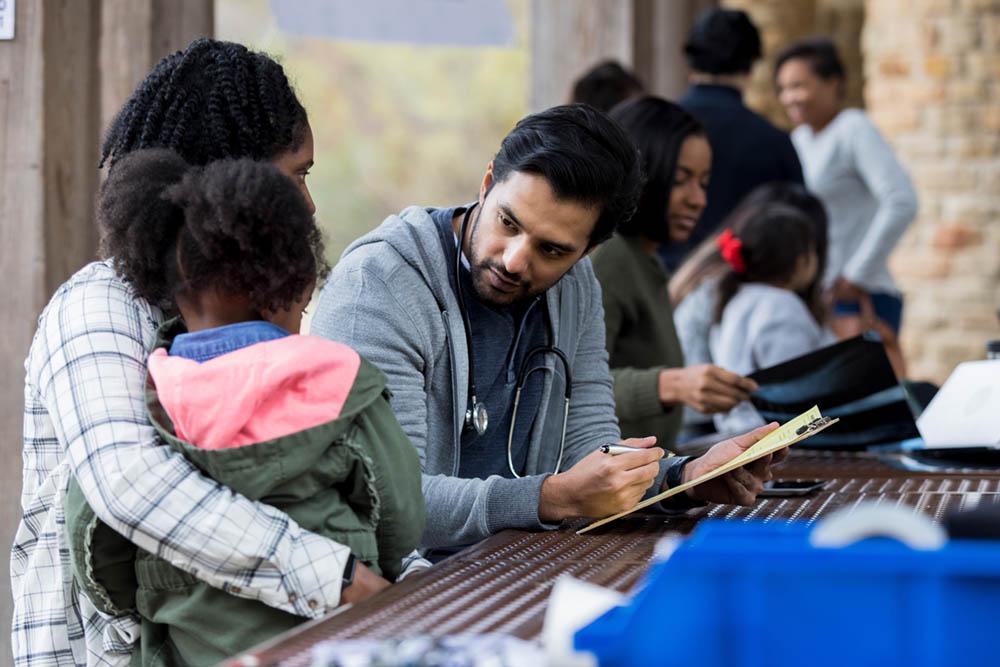Caring for Patients Experiencing Homelessness During a Public Health Crisis

To help prevent the spread of COVID-19, public health authorities recommend staying at home whenever possible, isolating from others, and calling a healthcare provider if you have symptoms. People experiencing homelessness, however, often live in places where social distancing isn’t possible, leaving them at higher risk of getting the disease. They’re also more likely to have chronic health conditions that put them at higher risk of having severe complications from COVID-19.
Minneapolis-based Hennepin Healthcare partners with Hennepin County Public Health and the Minnesota Department of Health to care for patients experiencing homelessness. Hennepin County’s Health Care for the Homeless staff and clinicians work in multiple walk-in clinics available at shelters and drop-in essential services centers. The Health Care for the Homeless program also includes a mobile street outreach team that provides care wherever patients are staying.
“This partnership to provide care to patients in need was already in place before the COVID-19 pandemic. It’s been a critical framework to make sure patients experiencing homelessness get care during this time,” said Dr. Danielle Robertshaw, medical director for Hennepin County’s Health Care for the Homeless initiative.
Dr. Robertshaw and her colleagues use Epic to identify patients experiencing homelessness and prioritize them for testing, especially if those patients have conditions like diabetes that put them at higher risk of severe complications from COVID-19. Hennepin Healthcare is providing mobile, community-based testing for these high-risk patients. If patients test positive for COVID-19 or report symptoms and don’t have a place to self-isolate, staff partner with the county to refer patients to designated isolation and quarantine hotels. Hennepin Healthcare also worked in support of its community partners to increase access to public bathrooms in the face of library and café closures.
“When patients experience long-standing social and healthcare disparities, it can leave them with less trust in the healthcare system—and it’s important that these patients get care, especially now,” Dr. Robertshaw said. “We want to make sure that we’re combating disparities in access to healthcare so testing for COVID-19 reflects the communities we serve.”
Epic community members can read more about strategies for testing and monitoring patients in the Managing Coronavirus Disease 2019 (COVID-19) with Epic white paper, which is updated regularly with recommended build and workflows.
